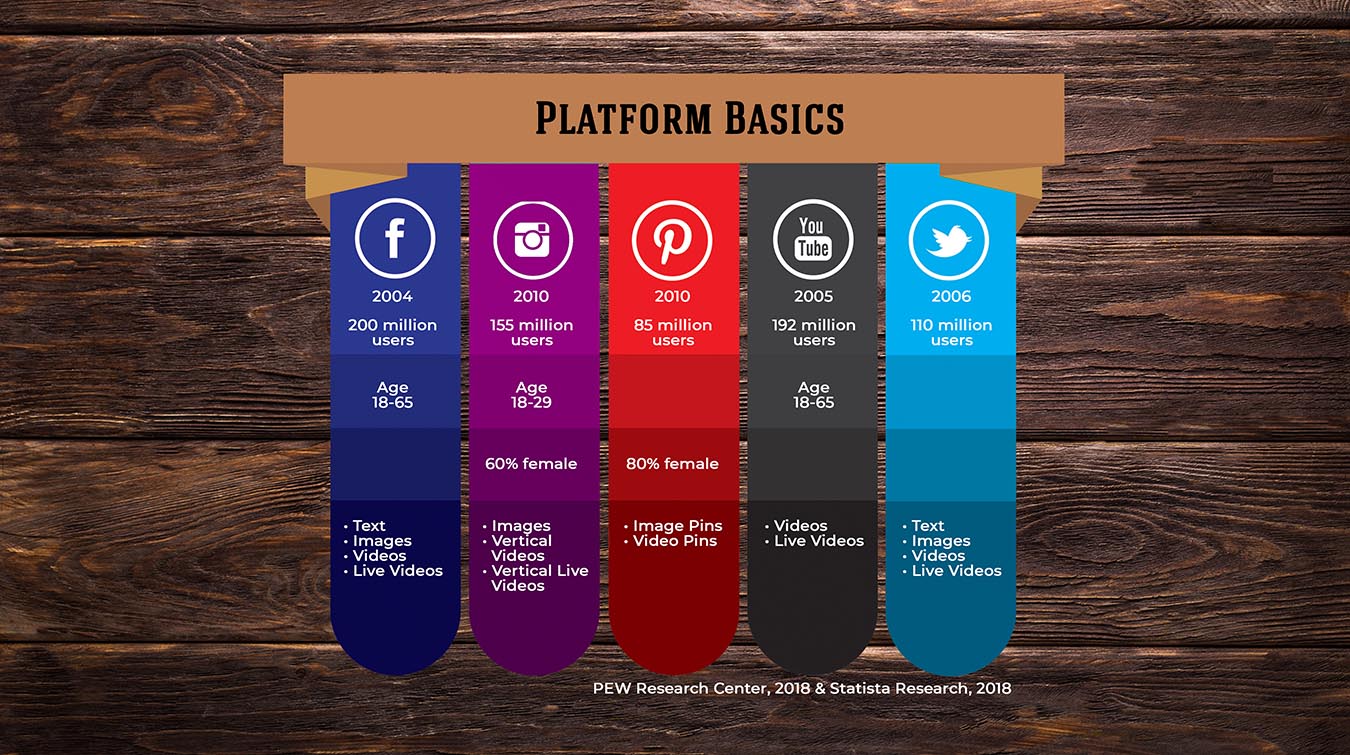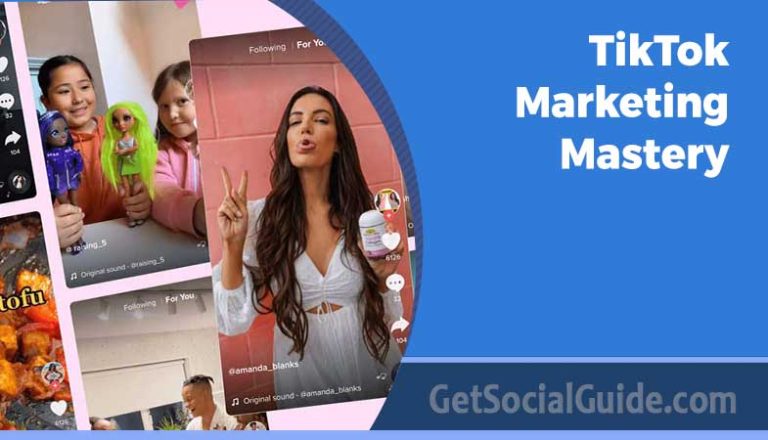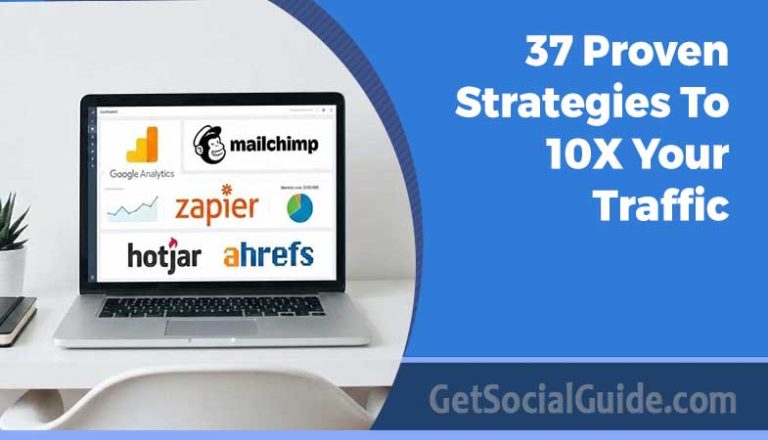Platform Selection Strategy
To choose a social media platform for your brand deeply analyze your audience, clarify your output goals, perform a competitor study, and keep experimenting.
Social media has become something more than just a place where people interact with each other. It has become an actual marketing hub these days. No doubt why 77% of businesses are leveraging it for their brand’s growth. Now that you have clicked on this blog, we assume you also want to use social media for your brand’s growth but are unsure of which platform to choose.
Don’t worry, we got your back. We are going to present to you some factors that can help you evaluate what social media platform will be the best for your brand. Before we discuss these factors, let’s discuss why social media can be important for your brand.

Digital Visibility Matters
The world has become digitalized and the presence of your visibility on social media matters – more than you might think. The basic reason why people use social media for their brands is marketing.
| Benefit | Impact | Key Statistic |
|---|---|---|
| Massive Reach | Global audience access | 60% of world population uses social media |
| Cost-Effective | Lower marketing costs | Cheaper than mainstream media |
| Brand Awareness | Increased visibility | Dramatic boost in recognition |
| Direct Engagement | Customer interaction | Real-time communication |
Since almost 60% of the world’s population uses social media, choosing the right platform can dramatically boost your brand awareness. Besides having a massive reach, marketing your brand on social media is relatively cheaper than marketing on mainstream media.
Now, let’s discuss how you can evaluate what social media platform you should choose for your brand.

🔍 4-Step Platform Selection Process
1. Deeply Analyze Your Audience:
🎯 Audience Analysis Strategy
Yes, more than half of the world’s population uses social media platform. But the important question is which social platform your targeted audience uses. You have to deeply analyze your audience’s demographics and other interests.
⚠️ Platform-Specific Demographics
For example, if your audience ages between 12-30 years, choosing Instagram for your brands can be more beneficial. That’s the reason why you have to deeply analyze your target audience to know their interests and presence on social media.
2. Clarify Your Output Goals:
After analyzing your audience, the next thing you can do is clarify your output goals. Knowing what type of output results you want from your brand’s social media campaigns will let you know which platform would be the best to gain these outputs.
| Goal | Best Platform | Strategy | Expected Outcome |
|---|---|---|---|
| Brand Awareness | Facebook, Instagram | Content sharing, hashtags | Increased visibility |
| Website Traffic | Twitter, LinkedIn | Link sharing, CTAs | Higher click-through rates |
| Product Sales | Instagram, Pinterest | Shoppable posts, product tags | Direct revenue growth |
| Lead Generation | LinkedIn, Facebook | Lead forms, gated content | More qualified leads |
| Audience Growth | TikTok, Instagram | Viral content, challenges | Follower increase |
3. Perform a Competitor Study:
📊 Competitive Intelligence
Knowing which social platforms your competitor brands are using can also help you choose the right one for you – especially if you are just starting your social media campaign. Don’t try to reinvent the wheel. Learn from your competition to save your time and resources.
You can study similar brands. Analyze what social media platforms are giving them the most reach and engagement. This will help you identify the right platform without much hustle.
4. Keep Experimenting:
🔬 The Experimentation Imperative
Yes, developing and following a planned strategy is helpful for choosing the right social platform for your brand. But nothing is going to give you more insights than actually experimenting with different platforms.
You won’t get deep insights unless you try out different social media platforms. Although it will take some time, the effort will be worthwhile in the end. Additionally, social media platforms are free to use and need less money to place advertisements on than traditional media. So, keep on practicing until you find the right one.
🏆 Platform Selection Guide
It is totally up to you what social media platform you want to use. However, here are some of the most widely used social platforms for brand marketing:
| Platform | Best For | Key Features | Target Audience | Action |
|---|---|---|---|---|
| Facebook |
The All-Rounder | 2.8B+ users, Business Pages, Groups, Advanced Ads | Broad demographic (25-65+) | Visit |
| LinkedIn |
Professional Networking | B2B connections, Articles, Industry Groups | Professionals, B2B clients | Visit |
| Instagram |
Visual Storytelling | Stories, Reels, Visual Content, Hashtags | Younger audience (12-35) | Visit |
| YouTube | Video Content World | Tutorials, Webinars, Long-form Content | All ages seeking education | Visit |
| Twitter/X | Quick & Engaging Updates | Real-time updates, Hashtags, Industry News | News-focused users, Professionals | Visit |
| Threads | Text-Based Conversations | Linked with Instagram, Positive community | Instagram users seeking discussion | Visit |
| TikTok | Short-Form Video | Trending content, Viral challenges, Hashtags | Gen Z & Younger Millennials | Visit |
Facebook: The All-Rounder
With over 2.8 billion active users, Facebook offers a massive potential audience for your coaching business. You can create a business page, share your expertise through posts, videos, and live streams, and engage with your audience through comments and direct messages.
LinkedIn: Professional Networking
Known as the go-to platform for professional networking, LinkedIn enables you to showcase your expertise, connect with like-minded individuals, and build your online reputation. It offers features such as publishing articles, joining industry-specific groups, and utilizing LinkedIn Pulse to share valuable content.
Instagram: Visual Storytelling
Instagram is perfect for coaches whose content relies heavily on visuals. Its visual appeal and engagement features like stories, Reels, and hashtags make it a popular choice for both inspiration and education. Consistency, creativity, and high-quality visuals are key to success on Instagram.
YouTube: Video Content World
As the second-largest search engine after Google, YouTube offers immense potential for building a dedicated audience through tutorials, webinars, or motivational videos. Creating a podcast can help build credibility for your brand. With YouTube’s long-form content and monetization options, it is perfect for coaches looking to establish themselves as industry leaders.
Conclusion:
🎯 Final Platform Selection Strategy
Social media, these days, have become a lot more than a place to virtually interact with each other. It has become a big marketing and business hub that many brands, small and big, are using for different purposes.
| Benefit | How to Achieve | Best Platform Examples |
|---|---|---|
| Brand Awareness | Consistent posting, hashtag use | Instagram, Facebook, TikTok |
| Lead Generation | Lead forms, gated content | LinkedIn, Facebook |
| Sales Growth | Shoppable posts, product tags | Instagram, Pinterest |
| Audience Engagement | Interactive content, polls | Twitter, Instagram Stories |
Using social media for your brand can be beneficial in many ways. You can increase your brand awareness, enhance your lead generation, and make more sales. However, selecting the right platform is not always easy. You have to go through different factors to finalize the right platform for your brand.
⚠️ Platform Selection Warning
In the information above, we have provided a detailed note on some of these factors that will be helpful for you in choosing the right platform for your brand. Remember that platform selection is not one-size-fits-all – what works for one brand may not work for another.






